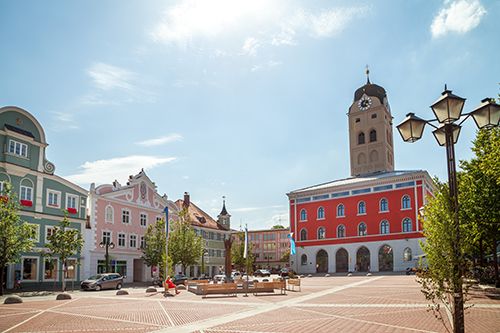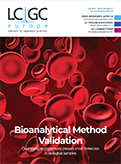SWEMSA 2019—Non-Target Screening Embedded in (Open Access) Platforms and Multi-Disciplinary Applications
The international, interdisciplinary workshop Solutions and Workflows in (Environmental) Molecular Screening and Analysis (SWEMSA 2019) will be held 21–23 October 2019 in the City Hall in Erding, Germany.
Image credit: pure-life-pictures/stock.adobe.com

The international, interdisciplinary workshop Solutions and Workflows in (Environmental) Molecular Screening and Analysis (SWEMSA 2019) will be held 21–23 October 2019 in the City Hall in Erding, Germany. This is the second time that this workshop will be organized close to Munich, which has one of the largest international airports in Germany. The symposium intends to continue the exciting international dialogue that started in 2016 at the Non-Target Conference 2016 in Ascona, Switzerland, and SWEMSA 16 in Garching, Germany, and has been ongoing in many meetings, workshops, seminars, and conferences.
This workshop will extend the discussion on nonâtarget screening (NTS) with the following topics:
- Computational mass spectrometry
- NTS in forensics
- NTS in food(omics)
- NTS in metabolomics
- NTS in commercial solutions
- NTS (guideline) in water analysis
- NTS in environmental analysis.
This workshop will bring together leading international scientists from various consortia. It is the ideal location for industrial and academic researchers to exchange information with other colleagues from all over the world. SWEMSA intends to inform, combine, and harmonize the NTS strategies and workflows from each single discipline to extend the NTS horizon and to offer the opportunity to “look over the edge”. Participants of various disciplines, such as chemistry, environment, food, forensic, informatics, metabolomics, water, and instrumental analysis will discuss the latest developments. The programme will feature a solution-focused discussion strategy, including overview talks and panel discussions in each slot. Each panel discussion-a SWEMSA speciality-is guided and strongly integrates the participants.
The overall aim of this meeting is to condense and harmonize various common aspects of NTS, to extend the use and understanding of software and workflow strategies, and to learn about the potential of NTS applied in various disciplines. The organizers encourage the active participation of younger scientists in the workshop, and a great amount of effort has been made to guarantee low participation costs (with registration until 31 August 2019).
A rich scientific and social programme awaits participants with scientific presentations and discussions and two evening events, respectively. The evening events will also bring participants closer to the Bavarian lifestyle and offer exciting culinary delights. Erding offers a wide range of accommodation for all budgets, and with its international airport it is easily accessible by plane, or by car or train.
The organizers look forward to welcoming delegates in Erding in October.
E: info@swemsa.eu W: www.swemsa.eu

Accelerating Monoclonal Antibody Quality Control: The Role of LC–MS in Upstream Bioprocessing
This study highlights the promising potential of LC–MS as a powerful tool for mAb quality control within the context of upstream processing.
Using GC-MS to Measure Improvement Efforts to TNT-Contaminated Soil
April 29th 2025Researchers developing a plant microbial consortium that can repair in-situ high concentration TNT (1434 mg/kg) contaminated soil, as well as overcome the limitations of previous studies that only focused on simulated pollution, used untargeted metabolone gas chromatography-mass spectrometry (GC-MS) to measure their success.
Prioritizing Non-Target Screening in LC–HRMS Environmental Sample Analysis
April 28th 2025When analyzing samples using liquid chromatography–high-resolution mass spectrometry, there are various ways the processes can be improved. Researchers created new methods for prioritizing these strategies.
Potential Obstacles in Chromatographic Analyses Distinguishing Marijuana from Hemp
April 28th 2025LCGC International's April series for National Cannabis Awareness Month concludes with a discussion with Walter B. Wilson from the National Institute of Standard and Technology’s (NIST’s) Chemical Sciences Division regarding recent research his team conducted investigating chromatographic interferences that can potentially inflate the levels of Δ9-THC in Cannabis sativa plant samples, and possible solutions to avoid this problem.

.png&w=3840&q=75)

.png&w=3840&q=75)



.png&w=3840&q=75)



.png&w=3840&q=75)










